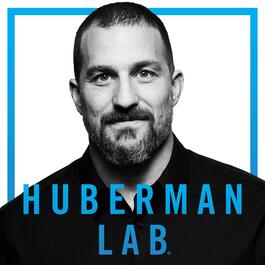
The Science & Practice of Perfecting Your Sleep | Dr. Matt Walker
In this episode, my guest is Dr. Matt Walker, Ph.D., Professor of Neuroscience and Psychology and the Founder & Director of the Center for Human Sleep Science at the University of California, Berkeley. He is also the author of the international best-selling book Why We Sleep and the host of "The Matt Walker Podcast." We discuss the biology of sleep, including its various stages and what specifically happens to those stages when we don't get enough sleep. We also discuss the effects of sunlight, caffeine, alcohol, naps, hormones, exercise, marijuana, sexual activity, and various supplements on sleep. The episode consists of both basic science information and many science-supported actionable tools. Read the full show notes for this episode at hubermanlab.com. Thank you to our sponsors AG1: https://athleticgreens.com/huberman LMNT: https://drinklmnt.com/hubermanlab Waking Up: https://wakingup.com/huberman Momentous: https://livemomentous.com/huberman Timestamps 00:00:00 Introducing Dr. Matt Walker 00:02:16 Sponsors: AG1, LMNT & Waking Up 00:06:00 What Is Sleep? 00:10:20 REM (Rapid Eye Movement) aka 'Paradoxical Sleep' 00:16:15 Slow Wave Sleep aka 'Deep Sleep' 00:24:00 Compensating For Lost Sleep 00:32:20 Waking in the Middle Of The Night 00:39:48 Uberman (Not Huberman!) Sleep Schedule 00:42:48 Viewing Morning Sunlight 00:49:20 Caffeine 01:07:54 Alcohol 01:14:30 Growth Hormone & Testosterone 01:16:14 Emotions, Mental Health & Longevity 01:20:40 Books vs. Podcasts 01:21:20 Lunchtime Alcohol 01:25:00 Marijuana/CBD 01:36:00 Melatonin 01:54:14 Magnesium 01:58:10 Valerian, Kiwi, Tart Cherry, Apigenin 02:15:00 Tryptophan & Serotonin 02:19:24 Naps & Non-Sleep-Deep-Rest (NSDR) 02:28:23 Is It Possible To Get Too Much Sleep? 02:34:35 Sex, Orgasm, Masturbation, Oxytocin, Relationships 02:47:30 Unconventional Yet Powerful Sleep Tips 02:59:10 Connecting to & Learning More from Dr. Walker 03:04:42 The New Dr. Matt Walker Podcast, Reviews & Support Disclaimer & Disclosures Learn more about your ad choices. Visit megaphone.fm/adchoices
From "Huberman Lab"




Comments
Add comment Feedback